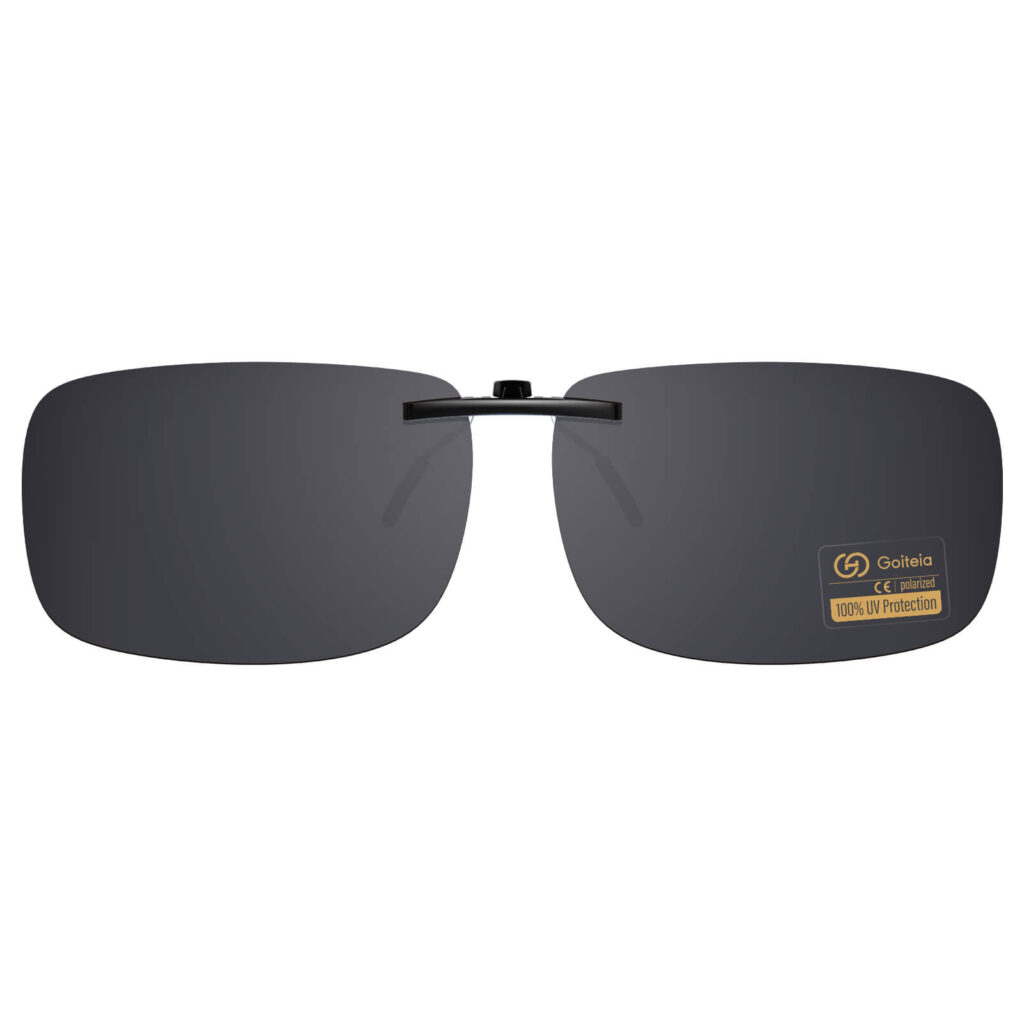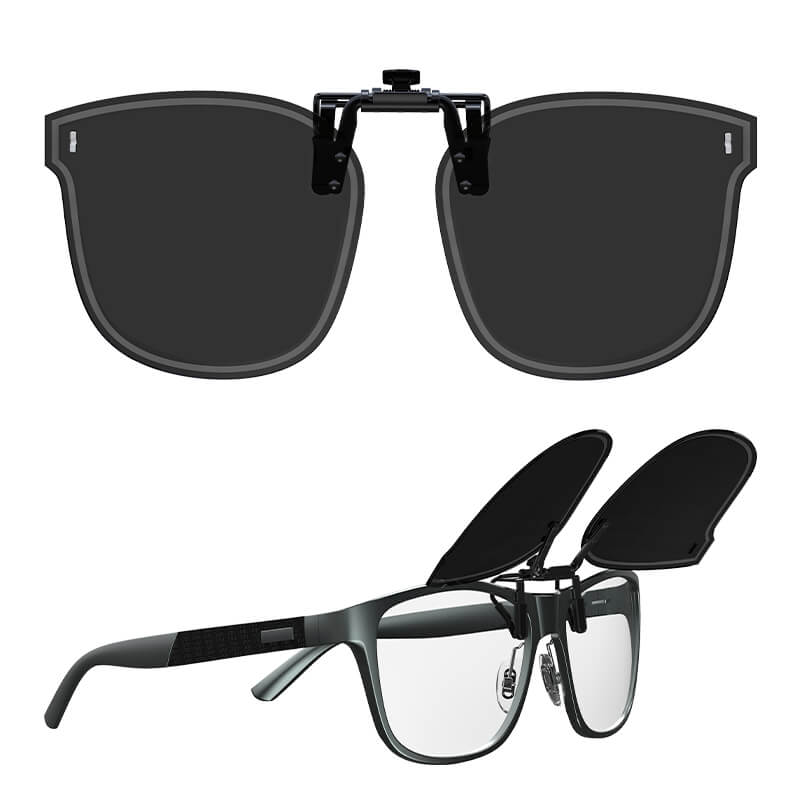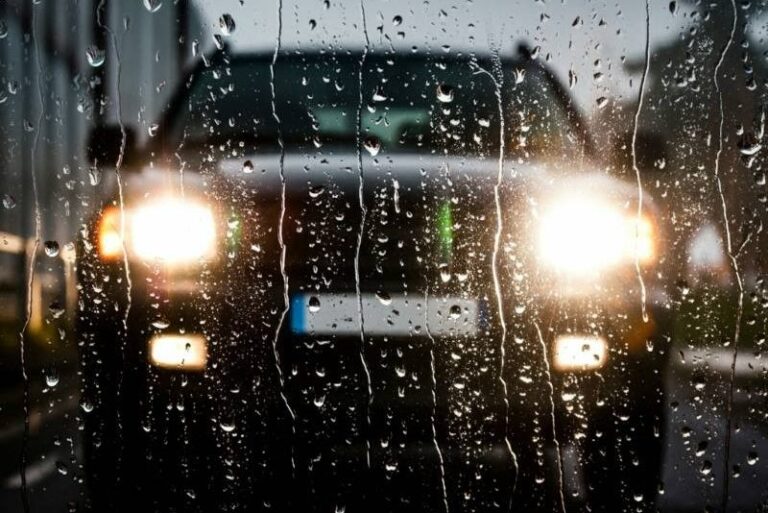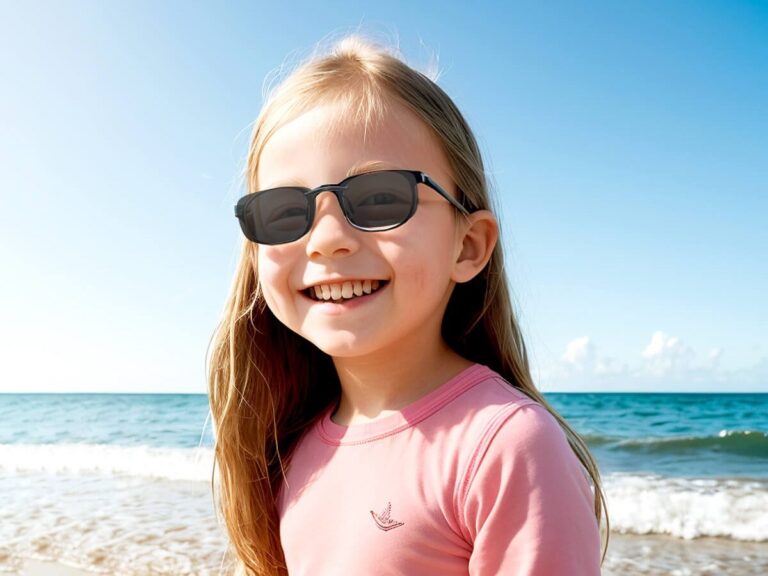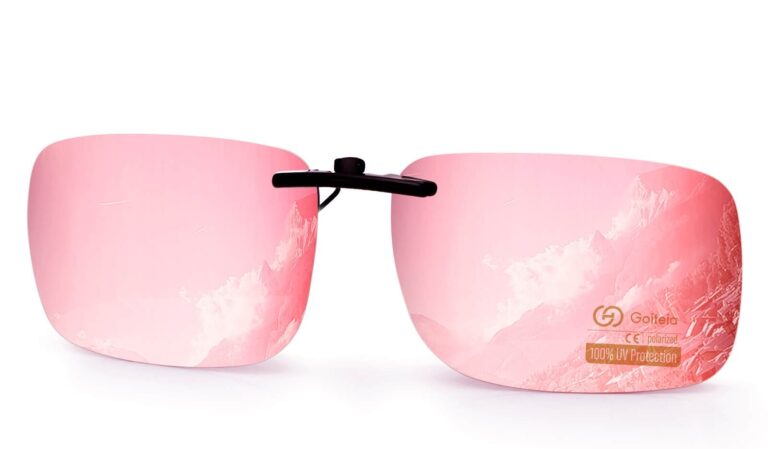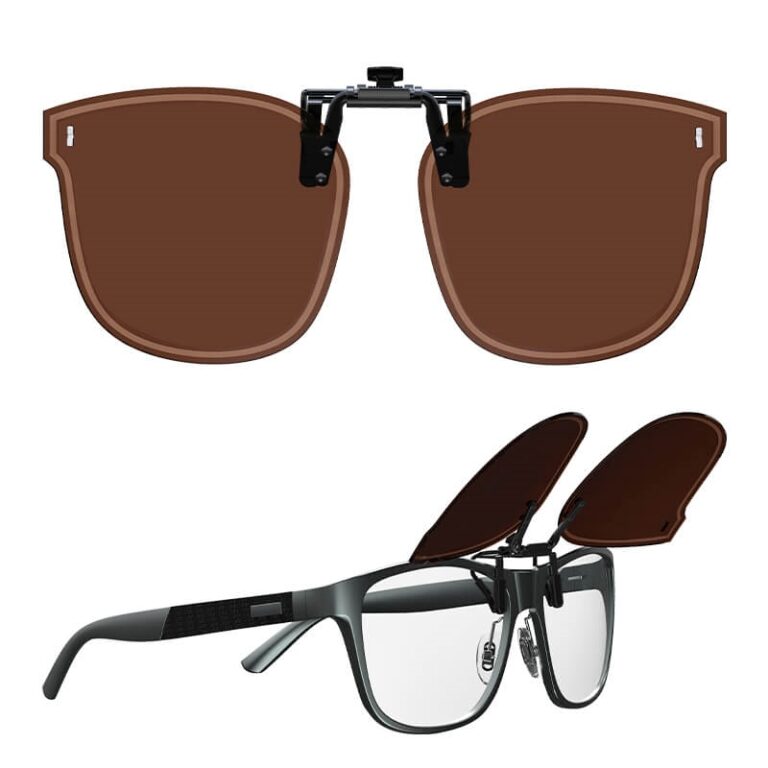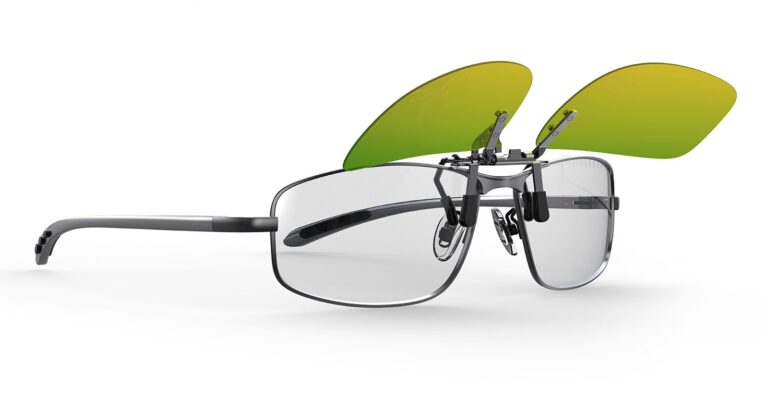Free UK/DE/FR/IT/ES/US Shipping, Other Countries (Free on Orders Over £50) SHOP NOW
Protecting your eyes from harmful UV rays is more than just a smart choice—it’s essential for long-term eye health. UV light can accelerate the aging of your eyes, increase the risk of eye diseases, and cause discomfort in everyday situations. Whether you’re hitting the beach, driving through bright sunlight, or just enjoying a sunny day, choosing the right UV light protection glasses can make a real difference. This guide will walk you through the key features to look for in effective UV protection eyewear, helping you make an informed choice that keeps your vision sharp and your eyes safe.
How Exposure to UV Light Can Affect Your Health
We often think of sunburns as the main risk of too much sun, but our eyes can get “burned” too. Over exposure to UV rays can accelerate the aging process of your eyes, leading to wrinkles around them and increasing the risk of developing eye diseases. For those who spend a lot of time outdoors or driving, this risk is even higher. And let’s not forget about the cumulative effect—every time you step outside without UV protection, those rays are slowly chipping away at your eye health.
Another overlooked risk is the indirect UV exposure that can happen even on cloudy days. UV rays can penetrate through clouds, meaning your eyes are still at risk even when the sun isn’t visible. Snow, water, sand, and other reflective surfaces can also bounce UV rays into your eyes, intensifying exposure. That’s why it’s essential to wear UV protection glasses not just during the summer but all year round.

How to Know If Your Glasses Are UV Protected
Ensuring that your glasses offer proper UV protection is essential for safeguarding your eye health. Here are some practical ways to verify the effectiveness of your UV protection glasses:
Check the Label
The easiest way to ensure your glasses offer UV protection is by checking the label. Look for labels that say “UV400” or “100% UV protection.” If the label is missing or unclear, it’s best to opt for a different pair.
Use a UV Flashlight
A simple way to test your glasses at home is by using a UV flashlight. Shine the UV light through the lenses onto a UV-sensitive surface, such as a UV-detecting card or a piece of paper marked with UV-reactive ink. If the surface doesn’t react, your glasses are effectively blocking UV rays. If the surface reacts or glows, it’s a sign that the lenses aren’t providing adequate protection.
Look for Certifications
Reputable sunglasses manufacturers often have their products tested for UV protection and certified by organizations like the American National Standards Institute (ANSI) or the International Organization for Standardization (ISO). Glasses that meet ANSI or ISO standards for UV protection are generally reliable, so look for these certifications when purchasing your glasses.
Consult with an Optometrist
If you’re unsure about the UV protection of your glasses, consider consulting with an optometrist. Many opticians offer UV testing services and can provide you with professional advice on whether your glasses offer adequate protection. This step is especially useful if you want to ensure that your glasses are meeting the necessary standards for UV protection.
Do Cheap UV Protection Glasses Work?
When considering UV protection glasses, you might wonder if cheaper options are as effective as more expensive ones. Let’s break it down:
Affordable Options Can Still Protect Your Eyes
Many budget-friendly UV protection glasses can effectively block harmful UV rays if they meet the UV400 standard. This means they block 100% of UVA and UVB rays, which is crucial for protecting your eyes. So, don’t let the lower price fool you—affordable glasses can still offer good UV protection.
Extra Features in Premium Glasses
While affordable glasses can do a great job at UV protection, premium glasses often come with added benefits that can enhance your overall experience. These might include advanced polarization to reduce glare, special coatings that resist smudges or scratches, or frames made from high-quality materials like titanium or acetate. Such features can improve comfort, provide clearer vision in bright conditions, and increase the durability of the glasses. However, if your primary concern is UV protection, these extras, while nice to have, might not be strictly necessary.
Durability and Build Quality
Cheaper glasses might not be as sturdy as high-end ones. They could be made from less durable materials, which might affect how long they last. If you’re looking for glasses that can handle everyday use and last for years, investing in higher-quality options might be worthwhile.
When to Choose Budget Glasses
If you need a pair of UV protection glasses for occasional use or as a backup, a less expensive option that meets the UV400 standard can be perfectly adequate. Just make sure they’re properly labeled for UV protection. In addition, clip-ons are a convenient and budget-friendly option. They are compact and easy to carry, so you can have UV protection available whenever you need it, whether you’re traveling or just going out for the day.
Common Misconceptions About UV Light Protection Glasses Explained
Despite their importance, there are several misconceptions surrounding UV light protection glasses. Let’s clear up a few of these myths:
Myth: Polarized Lenses Are the Same as UV Protection
Polarized lenses reduce glare by filtering out horizontal light waves, making them great for activities like driving or water sports. However, polarization alone does not block UV rays. To ensure your eyes are protected, look for glasses that offer both polarization and UV protection.
Myth: All Sunglasses Provide UV Protection
Not all sunglasses are created equal. Some may block visible light, making them appear dark, but still allow harmful UV rays to pass through. To ensure your sunglasses provide adequate protection, check for a label that states “UV400” or “100% UV protection.” This means the glasses block 100% of both UVA and UVB rays. When choosing between sunglasses or clip-ons, it’s essential to ensure the label is clear and free of any ambiguity—just like on these clip-on sunglasses.
Myth: Cheap UV Protection Glasses Are Ineffective
Contrary to popular belief, inexpensive UV protection eyewear can offer solid protection if they meet the necessary standards. The key is to verify that they provide UV400 protection. It’s important to note, however, that cheaper glasses might not be as durable or comfortable as higher-end options, so consider your needs and budget carefully.
Myth: Darker Lenses Offer More UV Protection
The color or darkness of the lens has nothing to do with its ability to block UV rays. UV protection comes from the material of the lens or the UV coating applied to it, not from the tint. In fact, dark lenses without UV protection can be more harmful because they cause your pupils to dilate, allowing more UV light to enter your eyes.
Maintenance and Care for UV Protection Glasses
Multiple users have pointed out the scratch issue. For instance, a Reddit user mentioned, ‘It’s easier to noticeably damage the AR coating compared to an uncoated lens.To ensure that your UV protection glasses remain effective and in good condition, proper maintenance and care are crucial:
Cleaning: Regularly clean your glasses with a microfiber cloth and a lens cleaner specifically designed for eyewear. Avoid using paper towels, tissues, or abrasive materials, as they can scratch the lenses and damage the UV coating. Gently wipe the lenses in a circular motion to remove smudges and dirt.
Storage: When not in use, store your glasses in a protective case to prevent scratches and damage. A hard case is ideal for protecting the lenses and frames from impacts and daily wear. Keep your glasses in a clean, dry place away from direct sunlight or extreme temperatures to maintain their quality.
Inspection and Replacement: Periodically inspect your glasses for any signs of damage, such as scratches, cracks, or signs of wear on the lenses or frames. If you notice any issues that affect visibility or comfort, it might be time to replace your glasses. Even if the lenses seem intact, UV protection can diminish over time, especially if the glasses are scratched or exposed to harsh conditions.
Conclusion
Choosing the right UV light protection eyewear is a crucial step in maintaining your eye health and comfort. By understanding how to evaluate UV protection, debunking common myths, and following proper care guidelines, you ensure that your glasses provide the best defense against harmful UV rays. Whether you’re opting for budget-friendly options or investing in premium eyewear, the key is to prioritize UV protection. With the right glasses, you can confidently face the sun and keep your eyes well-protected throughout the year.
FAQs
When should I consider replacing my UV protection glasses?
Replace your glasses if they show signs of damage like scratches or cracks, or if their UV protection seems compromised. Regular replacement helps maintain effective protection and clear vision.
Are polarized lenses a substitute for UV protection?
Polarized lenses help reduce glare but do not guarantee UV protection. For complete eye protection, choose glasses that combine both polarization and UV protection.
Do all sunglasses provide UV protection?
No, not all sunglasses offer UV protection. Ensure your sunglasses are labeled with UV400 or 100% UV protection to confirm they shield your eyes from harmful rays.
Are inexpensive UV protection glasses effective?
Affordable UV protection glasses can be effective if they meet UV400 standards. However, they might lack the durability or additional features of more expensive models.
Does the color of the lens affect UV protection?
No, the color or darkness of the lens does not affect UV protection. The UV-blocking capability depends on the lens material or coating, not its tint.


